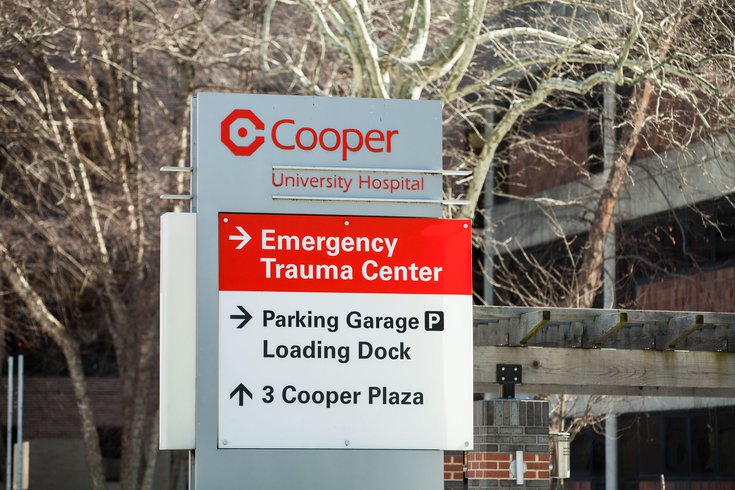
May 06, 2020
 Thom Carroll/PhillyVoice
Thom Carroll/PhillyVoice
Doctors fear patients are foregoing urgent care because they are afraid of getting COVID-19 at the hospital. Emergency department volume dropped by 40% at Cooper University Health Care in April.
Emergency medicine departments at hospitals in the Philadelphia region have been experiencing a sharp drop in non-COVID-19 related visits since March and doctors are concerned that many people are not getting the care they need.
Emergency room volume was down 40% in April compared to 2019 within the Cooper University Health Care system in South Jersey, officials said. At Jefferson Health, ER volume fell by more than 50%. And outpatient visits, radiology appointments, lab tests and surgical cases also have been significantly reduced.
"The first crisis of 2020 is COVID-19," said Dr. Jonathan Gleason, Jefferson Health's chief quality officer. "The second is other health care not received. We see it as a separate but related health crisis."
One of the biggest concerns is that people with complex health issues appear less likely to leave their homes for care, viewing hospitals as COVID-19 hotspots. But putting off important tests and treatments can have long-term health consequences.
Timing is particularly critical for many health issues, including heart attacks, strokes, abdominal pain and trauma, said Dr. Michael E. Chansky, chairman and chief of Cooper's emergency medicine department. Early treatment can minimize damage and improve patient survival.
“People should never ignore serious symptoms for fear of COVID-19 or any other reason," Chansky said. "We don't want people to stay at home when their health condition could worsen or become life-threatening."
Doctors urge people to head to the ER immediately if they experience chest pain or other heart attack signs, sudden numbness in the body, slurred speech or any injury with severe bleeding or possible broken bones. They also advise anyone suffering from head trauma, a severe headache, rash or abdominal pain to seek immediate medical attention.
Some of the reduced ER volume could stem from people not getting out as much during the stay-at-home orders, making accidents less likely. But fears of contracting the coronavirus and worries that hospitals are overwhelmed with COVID-19 patients also are driving forces, Chansky and Gleason said.
The images of patients lining hospitals hallways and stories about shortages of staff and personal protection equipment are difficult for people to forget, Gleason said.
But the situation in the Philadelphia region is not as dire, the doctors said. Hospital caseloads remain manageable, even with an abundance of COVID-19 patients.
The region's emergency departments are prepared to handle any unexpected health emergency. And the risk of contracting the coronavirus while at the hospital is low because of safety protocols put in place, they said.
Cooper is segregating patients who have influenza-like symptoms from other patients, and has instituted a multi-level COVID-19 screening process for everyone who enters its buildings, including employees, to reduce the risk. All the waiting areas and patient rooms are regularly disinfected and cleaned.
"Our biggest priority is to provide the highest quality of care while keeping staff and patients safe," Chansky said. "No providers in our ERs have contracted COVID-19, which is a testimony to all the safety protocols we have put into place. We have been masking all providers and patients since early March."
Cooper also has increased COVID-19 testing among its staff members. Negative antibody tests show that the protections they put in place are working, Chansky said.
Gleason said he does not know of any cases in which COVID-19 spread to non-coronavirus patients within Jefferson's hospitals. Like most health systems, everyone in the hospital and care environments is masked.
"Our staff are monitoring themselves and we are testing at a higher rate," Gleason said. "We have protocols to determine who needs to be tested and for when quarantining is necessary."
Gleason stressed that anyone concerned about their health should visit the ER or use telehealth services like JeffConnect to talk to with a doctor.
"It is far better to make a decision about your health with a health care professional than on your own," he said.
As states begin the process of reopening, emergency departments expect to see more patients who have suffered injuries at work or play. And with the weather warming, they anticipate more home-related injuries, like falls from ladder.
But with some people avoiding hospitals, the broader health impact of the coronavirus pandemic may not become clear for some time.
"We will be learning what the impact of this will be over the next couple of months and years," Gleason said.